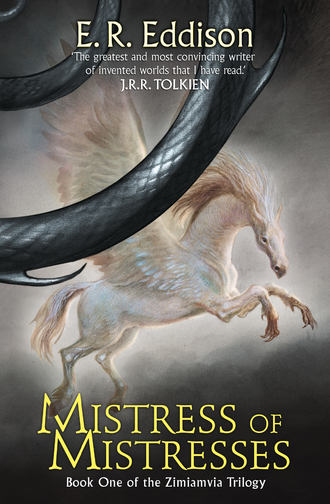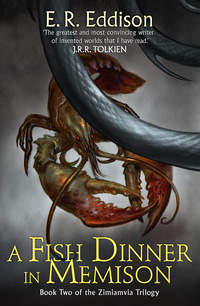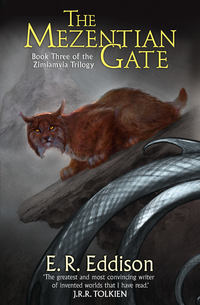
Полная версия
Mistress of Mistresses
For a time they ate in silence. Every other while, the Vicar’s sudden eye glinted upon Lessingham; it was as if he had a mind to propound some matter, but would be besought for it first. But Lessingham sat sphinx-like and unconcerned in his pleasant ease, as wanting nothing, desiring nothing, at peace with himself and the hour and the fresh morning. At length the Vicar spoke: ‘You are as unquiet and restless as an October stag: but three days here, and already I see you in a fever for some new action.’
Lessingham smiled.
After a time the Vicar spoke again: ‘For my own part, I had as lief sit quiet now: enjoy that fortune hath given us.’
‘I praise your resolution,’ said Lessingham: ‘a most pious and fine humility in you, whom fortune hath so much blest, without all seconding of your proper action.’
The Vicar took a peach and skinned it. ‘Could we but count,’ he said, ‘on others for the like temperate withholding.’
Lessingham said nothing.
‘The south breedeth hot bloods and hot livers like summer flies,’ said the Vicar after a pause. He poured out some more wine. ‘’Tis that gives me stay,’ he said. ‘’Tis that makes me think may be we should do somewhat,’ he said, after another mouthful.
Lessingham waited.
The Vicar smote his fist on the table. ‘I am master of the game, by this lucky turn,’ he said: ‘play off the fat Admiral ’gainst the Duke, and all the poppets of Meszria ’gainst each in turn: cheap as kissing, and twice as profitable. But it needs suasion, cousin, specious arguments; butter ’em, tickle ’em, conycatch ‘em; you must go to ’em like coy wenches: amuse ’em, feed ’em with pathetical flim-flams, flout ’em, then seem to forget ’em, then be somewhat bold with ’em, laugh at ’em; last, i’ the happy instant, ring up the grand main piece. Now I, cousin, am a loose, plain, rude talker: call a spade a spade. But you, and you would, should do this to admiration.’
‘I have handled such a matter ere now,’ said Lessingham, ‘and have not spoilt things utterly.’
‘Cousin,’ said the Vicar: ‘harkee, I would have your head in this. I would have you fare south and play this game for me. You shall be my ambassador. And, so you magnify it not beyond all reason, you shall name your own reward.’
‘I did think you knew,’ said Lessingham, ‘that it is not my way to do aught upon reward. Reason why, that to such things only am I wont to set my hand as the reward thereof lieth in the doing of ’em.’
‘’Twould make a dog laugh to hear such fiddle-faddle,’ said the Vicar. ‘Go to, I shall give you wide choice of dominion and treasure when the time comes. Will you do it?’
‘I will do it,’ answered Lessingham: ‘but upon conditions.’ His eyes were a-sparkle.
‘Well,’ said the Vicar.
Lessingham said, ‘First is, that you uphold the King’s testament.’
‘That,’ replied he, ‘proceedeth without question. It is my open proclaimed policy to uphold it throughly, and if you will I’ll swear to it.’
‘Second is,’ said Lessingham, ‘that you own and acknowledge to me, for my private ear only, here in this place, that ’twas by your rede, more, your direct commandment, the King was lately thus miserably murdered.’
The Vicar laughed. ‘’Las cousin, will you, too, give credit to that slanderous rumour and obloquy now going abroad?’
‘I see,’ said Lessingham: ‘you will not fulfil my second condition. Good. Get you another ambassador.’
The Vicar’s face was scarlet to look upon. He said, ‘I swear to you by God, the very founder, furtherer, and finisher of truth—’
Lessingham brake in upon him: ‘Give over, cousin. Indeed, if you be not damned already ’twere pity damn yourself for so hopeless an attempt as make me credit what I well know to be a lie. Be not angry, cousin: here we be close as the grave: surely ’twixt you and I ’tis stretch courtesy past use and reason to pretend I know you not for a most approved liar and forswearer.’ He ate a bit of marmalade, and leaned back in his chair. ‘To be open with you,’ he said, ‘you have put me into such a gog of going. I would not stay now for the world. Yet see the pass we stand in: if it be as hard for you to tell the truth as for me to go back from my word, I’m sorry for it, for then all goeth miss.’
‘Put case it were true,’ said the Vicar. ‘Were it not rash in you to desire a knowledge might hurry you to ruin? Like to that great man’s mistress, wheedled him to confess a horrid murder, which done, he swore her to silence upon a poisoned book: knowing it lay not in her to conceal his counsel, bound her to’t by death.’
Lessingham looked at him with the flicker of a smile in his eyes. ‘When I am grown so useless to you, cousin, as you should afford to lose me, I’ll think it danger to receive such secrets of you. Till then, no. I’ll trust no man’s affections, but I trust your wisdom most securely. Most securely, cousin.’
The Vicar toyed with his wine-cup. ‘Be that as it may,’ he said at last. ‘This you talk on is a monstrous folly. Where’s the reason of the thing? I were a fine fool to a murdered the young suck-egg, when ’twas in my hand to have overthrown him with force of arms.’
‘There,’ replied Lessingham, ‘you do much belie your prudent mind. It had been folly indeed to stand in the eyes of the world a usurping rebel, when ’twas the readier way, with some devilish pothecary stuff, stibium, henbane, I know not what, to whiffle him off and then put on your mourning and say his jealous brother did it.’
‘Ay, and did he,’ said the Vicar. ‘And did set too the lying tongues a-wag to say ’twas I.’
Lessingham yawned and studied the back of his hand, the little silky black hairs that grew fine and smooth on the shapely finger-joints, and the heavy ancient golden worm that he wore on his middle finger, scaly, eating of its own tail, its head a cabochon ruby big as a sparrow’s egg, that glowed with inward fires like the blood-red fires of sunset.
‘You will go then?’ said the Vicar.
‘But upon condition of confession,’ answered he.
The Vicar lurched up from the table and began to pace about. Lessingham yawned again and played with his ring. Neither spoke. After a minute the Vicar, grinding his teeth, came and stood over against him. Lessingham looked up. ‘Dear cousin,’ he said, ‘how long will you stay this matter’s going into action, of so much worth and moment? And how long will you seek to cast suds in my eyes that am long since satisfied of the truth, but will have it of you in friendship? You did send me out of the way to Mornagay whiles it was done. But I know it.’
The Vicar laughed with anger. ‘Know it? Upon what evidence?’ He ground his teeth. ‘Gabriel, that filth, was’t he told you this? I’ll have him hewn in pieces.’
‘O spare your pains,’ said Lessingham. ‘Should Gabriel tell me at noonday ’twas twelve o’clock, I’d have evidence corroborative ere I’d believe it. No, cousin, I am satisfied you did act this murder; not by your own hand, indeed: that were too simple: but yours the deed was. And since you will be so strange with me as deny the thing: well, the Gods be with you, I’ll have no further hand with you.’
The Vicar sat down again and leaned across the table, glowering at him awhile in silence. Lessingham returned his gaze steadily; the eyes of Lessingham were grey with brown and golden speckles. The Vicar at length turned away his gaze. ‘Well,’ he said betwixt his teeth: ‘I did it.’
Slowly and luxuriously Lessingham stretched his arms, yawned, and then sat up. He reached out a leisurely hand to the golden flagon and filled his goblet with red hippocras. ‘Truth hath been long time a-coming out,’ he said. ‘I’ll pledge her, so.’ He drank, looking over the cup at the Vicar with a slow smiling contentment, a strange, clouded look, in which came suddenly an alteration as if the red sun had glared out through a rift in the clouds. ‘This murder,’ said he, and there were now undertones and overtones in his voice that made it terrible, for all it was so quiet and came on so even and undisturbed a breath: ‘This murder was one of the most filthiest acts that ever was done.’
The Vicar faced him like a bull of Nineveh.
‘You did show me the testament,’ said Lessingham. ‘Was that some fine counterfeit device of yours, or was it real and true?’ The Vicar made no answer. Lessingham said, ‘Well, I know it was true, by tests beyond your protestations, cousin. And I remarked it very particularly, wherein it did name you vicar and vice-regent of the Queen and lord protector of her minority, and did enjoin you in all points study her proper good and safety and the enhancement of her sovereign power and dominion, and tender and cherish her lovingly as a father should. You are not much practised in a father’s part, I think. Since you did drive your sons away into exile. This will be hard for you.’
He paused, looking the Vicar straight in the eye. It was as if across that silent table two thunder-clouds faced each other in an awful calm. Lessingham spoke: ‘You have promised me to uphold that testament. Well, I’ll help you, as I have done before. I’ll go on this embassage for you. I’ll follow and uphold you as Vicar of the Queen. But this testament shall be to you as a thing enskied and holy. Which if in any jot or tittle you shall offend against, or one finger’s breadth depart from it: no more, but you shall bitterly aby it.’
The Vicar ran his tongue over his lips. For a minute he was silent, then in a kind of cold tart pride he said, ‘I were poorly paid then for my goodness and forbearance; seeing these five minutes past I have had a more than most intolerable lust to murder you, yet, I know not why, forbore.’ He stood up with a laugh, and with a forced pretence of jolly-scoffing bravery. ‘What squibs be these, for men of our kidney to tease ourselves withal of a spring morning! And, cousin, this is the maggot in the oak-apple: you are clean fallen in love with yonder little wagtail at mere hearsay.’
Lessingham answered and said, ‘With you, cousin, I have long fallen in love.’
VI LORD LESSINGHAM’S EMBASSAGE
THE ADMIRAL AND THE CHANCELLOR • DISCORDS OF LESSINGHAM’S PLANTING • THE ADMIRAL MUCH PERPLEXED • DIVIDED POLITICS • LESSINGHAM AND VANDERMAST • CONFERENCE IN ACROZAYANA • THE DUKE BROUGHT TO BAY • A BROKEN CONSORT • THE DUKE AND LESSINGHAM: STRANGE CONCORDS.
THAT was of an evening of late May-time, the fourth week after these things but now spoken of, that the Lord Beroald sat alone at the upper edge of a clearing in the oak-woods that clothe the low Darial hills south of the lake, looking northwards to Zayana. From his feet the ground fell gently away for a hundred paces or more to the bridle-path. Below that, the tree-clad face of the hill dropped sharply to the lake seven or eight hundred feet beneath. The sky was fair, and the weather smooth and calm. His horse grazed at ease, moving to and fro amid the lush grasses. Save for that munching sound, and the sound of falling water, and now and then the note of a cuckoo calling, and now and then the noise of the horse’s hoof against a stone, there was silence. A marmot came out of a heap of fallen rocks behind him on his left and sat up with little fore-paws hanging down as if in a helpless soft dismay, viewing the Chancellor. She whistled and retired back to her hole when the silence was broken by a fresh noise of horse-hooves, and the lord Admiral rode up into the clearing, greeted the Chancellor, and dismounted beside him.
‘It is very much,’ said the Lord Jeronimy, when they were sat down together upon a great stone, ‘that we should be fain to take counsel under the sky like owls or moor-dogs.’
Beroald smiled his cold smile. ‘I am much beholden to your lordship for suffering this inconvenience. In the city, a flea shall not frisk forth unless his intelligencers comment upon her. And this new business both calleth for speedy action, and needs that both you and I examine and consider of it o’erheard by none.’
‘Will he not take my no for an answer?’ said Jeronimy. ‘Why, what a loose hot corrupter of virtue have we here. First getteth no from me; then no from the Duke; and now sueth to your lordship to be in a manner his go-between, as if I were a silly maid to comply at last, with oftener scenting of the flower. What new conditions now then?’
‘’Tis not altogether thus,’ said the Chancellor. The offer is now to me in my own particular.’
Jeronimy opened his lips as if to speak, but there was a moment ere the words came: ‘To you, my lord? Good: and upon like condition?’
‘Upon like condition.’
‘Of suzerainty?’ said Jeronimy. ‘Well, and do you mean to take it? No, no,’ he said, meeting the Chancellor’s cold eye: ‘I meant not that. I meant, in what estate left you this business with him? did you in a manner temporize?’
Beroald answered, ‘I did handle the thing in such a vein as that I must give him yea or nay tomorrow.’
The Admiral pulled off his black velvet cap plumed with a white estridge-feather set in a diamond brooch, mopped his head, and put on his cap again.
The Lord Beroald gazed steadily before him on Acrozayana, two or three miles away, mirrored in the glassy lake. His speech came cool and glassy, like the thing he looked on, remote and passionless as if it were his own thought speaking to itself. ‘It is needful,’ he said, ‘in this business, that we hold heedy guard, and reckon well our strength. Now is ten days today that this Lessingham, treating with full powers on behalf of the Vicar, hath dealt with us touching the Meszrian regency; and if there be any alteration made in these ten days, ’tis to their advantage, not ours. First his offer unto you, my lord Admiral, that the Vicar would receive and acknowledge you as regent in Meszria conformably in all points to the King’s testament, and upon condition (which he stiffly maintained to be in that same testament supposed and implicit) that you should do him homage as, pending the Queen’s minority, your overlord. That condition you did, in agreement with the Duke, with Roder, and with myself, after mature deliberation of counsel, flatly refuse. The next day after your so refusing, he did offer the regency upon like condition to the Duke, who did refuse it. That was but yesterday. And now, this very morning, did send for me and propound to me the self-same offer; which I, forbearing all private closer conference, fobbed off until tomorrow. Thus standeth it, then. What follows? If I refuse,’ (upon that ‘if’ the Admiral pulled out his handkerchief and mopped his head), ‘next move belike is overture of regency to Roder, and then, if he’ll not take it, war. I like it not. The Duke I do trust but as you do, my lord: very discreetly. These Meszrian lords, not at all. The Vicar hath a fair solicitor, hath got the right ear of Zapheles, and Melates, too, or I am much mistook: young fools, that have not the wit to see in all the Vicar’s promises but fair sunshining, sweetly spoken and but sourly to be performed. Prince Ercles in the north, too, is not so good to rest on, even if Barganax be safe: if the Vicar make war upon the Duke and us upon pretext of enforcing of the King’s testament, you shall not see Ercles nor Aramond put their finger too far in the fire o’ the Duke’s behalf; Lessingham, I am told, hath made friends with ’em both of late.’
‘That Lessingham is a subtle devil,’ said Jeronimy.
‘This latest offer thus made to me,’ said the Chancellor, ‘hath given us the chance if need be to afterthink us. That were pity were it appear in the end that our eyes were greater than our bellies. I would remember you of this, my lord Admiral, that in point of construction the Vicar’s claim of suzerainty is good in law. We are precisely bound to uphold the testament. It can be said that, going against him in this, we do merely violate it. The Parry himself none but a ninny would trust further than a might see him; but here ’tis not to deal with him direct, but through Lessingham.’
‘As ’t should be handed us,’ said Jeronimy, ‘in a fair gilded cup, to make his poison go down the smoother.’
‘I see it not altogether so,’ said Beroald. ‘’Tis a young man of most supposed abilities both in the council and a soldier of renown. I have these ten days studied him like a book, and I find no point to question, but all to confirm and justify what reputation saith of him: an honourable man, and a man with the power to hold his principal to whatsoever he shall stand warrant for of his behalf. And he hath, in no qualified way but at large, took it upon his honour that upon agreement made betwixt us the Vicar will perform the King’s testament unto the littlest letter.’
Jeronimy said, ‘He is a subtle devil.’
‘It is for you, not me, to determine,’ said the Chancellor. ‘Only I would have you consider of all this, not as somewhat to be swept up with a sudden and tumultuous judgement, but as a thing of heaviest import. For you see, you may, upon this offer thus made to me, open your dealings anew with him, and take up the regency upon condition of suzerainty and upon his proper warranty of the Vicar’s performance.’
‘And so, in a manner—’ said the Admiral slowly, and fell silent. The Chancellor said no more, judging it good to give time for these matters to digest.
They sat in shadow. The sun had for some time now gone behind the hill on their left. The shadows lengthened over the lake. The horses munched on. After a while the Chancellor spoke: ‘Will you not change your mind?’
The Lord Jeronimy rose heavily from his seat and stood looking at him a minute in silence; then said, ‘No. And no more must you, my lord Chancellor.’
‘We stand together,’ said Beroald, and rose up too. ‘Yet remember, things worsen as time goeth by. These country lords are quite debauched by him. ’Tis time to end talking and fall to action.’
The Admiral’s black mare, at her lord’s stirring, came to him and nuzzled her nose in his neck. He fondled and petted her. ‘’Tis time indeed,’ he said. ‘Time indeed.’
‘Better we were not seen too much in conference tonight,’ said Beroald. ‘Better not enter the gates together.’
‘Will you ride first,’ said the Admiral, ‘or shall I? Truth is, I had been minded for Sestola tonight, ’bout some business of the fleet. But as things shape, I will let that go by and sleep in Zayana.’
‘I pray you ride first,’ said the Chancellor.
The Admiral came down through the wood at a walking pace, his mind heavy with thought. His men, that had waited this while in the wood with the Chancellor’s, rode a score of paces or so behind him. ‘Lessingham,’ he said in himself. ‘A very subtle devil: a devil full of all seduction and charm. Hath a not charmed me too? Ay, but not too far: not to danger. Like to that son of mine, drowned in the Sound of Tabarey: should a been of about his years too, had he lived. Pish! ’Tis foolery. And yet, ’tis in the Duke too. Lessingham: Barganax. Strange: so unlike, and yet, in a manner, so like; both of the grape, as ’twere. Red wine: white wine. Away, ’tis foolery. Still, like a shying horse: ride her up to it, let her see and examine it well as to its nature: it frighteth her not another time.’ His mind stood still awhile. Then he said again in himself, ‘Hath charmed Beroald. Nay, but that’s not true neither. Nay, I trust Beroald.’
He drew rein for a moment as the path rounded the verge of a jutting cliff giving a fair wide prospect over the water. An owl hooted. Jeronimy said in himself, ‘If he can handle Horius Parry, as folk say he can: tickle him, make him serve his turn; what wonder in the world can he not do then?’ He rode on. ‘Beroald is a man of law. There’s his element. But with me ’tis substance and intention, not form and accident. And yet indeed, a great wise man; prudent and foreseeing. Ay, “time to afterthink us”, that’s wisdom. Worse weather than that we put to sea in: ay, ’tis pure truth. There’s many would take his rede and think no more on’t. Safer. Safer take his rede.
‘Ay, but I do know ’tis wrong. In my bones I know it.’ He struck spurs into the mare’s flanks: she started forward violently: he leaned forward calming her, patting her neck. ‘No, I’ll not change my mind. Nor you must not neither, my lord Chancellor. But then, what next? Action, next. An end of these talkings: ’tis time indeed.’ He stroked her neck again, softly, meditatively. ‘And I the main actor. Regent of Meszria. Lieth upon me. Well, we have long since considered on’t. With right of our side; and with the Duke of our side. “I am of your opinion,” said he. Well: now cometh this silver to the trying. Barganax: is he to trust to? ’Tis a doubt whereon hangeth all, on this one thin thread. Trust him discreetly. The word is wiser than the deed, now I consider on’t. O, the down-bearing weight of this immense charge. Tis a fine toy, make up alliance with a royal prince on terms he must but figure bass for such a man as me to run the divisions on’t; comfort and uphold me at all points whiles I sit i’ the seat he looked for as his by right. If he have a spice of pride in him still (and he is made up and compounded of pride, opinion, and disdain), shall he not hate me every while, and seek but first fair occasion to ding me down and take his own back? And yet the man’s mind is so noble, I’d trust him, where his word’s engaged, even to breaking-point. And yet, no, ’tis midsummer madness: ’tis but the spell of his masterful youth and grace, like t’other’s. I had done with this ten minutes since: ’tis ‘foolery. And yet, and yet: have I not proof of’s loyal mind within reason: his refusing on’t when Lessingham did offer it? Nay, but ’twas but stinking fish then: ’twas under suzerainty. And he of the royal ancient family of Fingiswold.’
He halted, as with a sudden thought then with a shake of the rein went on. ‘Of Fingiswold. Ay, and of Memison. I’ll do it. Better hazard sinking there, than sink for sure where we stand. And there’s some hope. Say they be corrupted indeed, these young quats, with Lessingham’s words and promises: ’tis certain their corruption, even as their fealty, is but skin-deep. They’ll follow their own liege sovereign prince of Meszrian blood and line a thousand times, where, were it but me, they’d take but the happy instant to throw me off and so rid them at last of the prime scourge and hate of all their liberties for years. I’ll do it. Ay, I’ll do it tonight.’
That same night after supper the Chancellor was sat in his chamber writing out fair this letter, which being writ he signed by his name and sealed with his seal. And the letter was conceived in terms following:
‘Unto thonorable my very goode Lo. Lessynghame as wyth fulle powre and awtoritee dymysed and prorogate to speke trette and determyn on byhalve of his hyghnes Horyus Parye Lo. Protector and Vicker of the Qwene in Reyrek:
I have bin carefull my Lo. to waighe and conseder of hys Highnes proposes wherewithall hys hyghnes hath honored me thorow your lops, mowth to thende that for the bettere setlying and doynge awaie of these presente diffrences I schold in myn owne persoun accept of the Regensy of Meszrya upon condicyons exposed att lardge bi your lop., and bi asspeciall thus condicyon that the Regent schalbe in al poyntes His Hyghnes subgytte and uery leage man. Al whilke I hauing with carefull mind perpended and revuiewed am lefte att length wyth noe other choys that semeth to me agreable unto my propre honor and my dwte ylike to the Qwene (hoom the Goddes tender and preserue) and to thadmerall bi royalle testement named regent but bi hys hyghnes set asyde upon refusell of condicyoun a forseyd, saue to conclud that yt is nat fytt I schold accept of the sed Regensy. Whilke resolue thus consederately taken I will vnmoueably stand upon, and wold dessire your lop. to acqweynt Hys Highnes accordynge.
The Goddes leade your lop. bi the hande.
I haue thonor to bee with greatt trewth and respecte your lops, most obedient humble Servaunt,
BEROALD’
The ink was scarce dry and the wax yet warm when there came in a gentleman of his to say the High Admiral was here and would have speech of him. The Chancellor smiled. ‘That saveth me a journey,’ he said: ‘I was this instant upon going to see him;’ and he bade admit him straight. When they were private, ‘My lord Chancellor,’ said Jeronimy, and his face was flushed, ‘I bring you good tidings. I have seen the Duke upon this matter we talked on.’





